- Home
- Jean Stone
A Vineyard Christmas
A Vineyard Christmas Read online
A BABY FOR CHRISTMAS
She crept to the door and tried to peer through a small pane, but a light layer of frost clouded the glass.
The soft cry came again.
Turning the flimsy lock, she sucked in her breath and slowly opened the door. A crack at first. An inch. Then two. She couldn’t imagine what in God’s name had prompted her to do that. Even Murphy would have thought that she was nuts.
Then, there it was. On the floor, right outside the door. Not a raccoon or a skunk, but a basket. A big handwoven basket, the kind her aunt had used to hold skeins of yarn. A red bow was tied around the handle. And inside was a baby, swaddled in white fleece.
PRAISE FOR JEAN STONE’S PREVIOUS NOVELS
“Stone is a talented novelist whose elegant prose brings the Martha’s Vineyard setting vividly to life.... A very good read.”
—Milwaukee Journal Sentinel
“Stone’s graceful prose, vivid imagery and compassionately drawn characters make this one a standout.”
—Publishers Weekly
“Jean Stone is a truly gifted writer. I wish I could claim her as a long-lost sister—but I can’t. I can merely enjoy her wonderful talent.”
—nationally best-selling author Katherine Stone
“A wrenching and emotionally complex story. Sometimes, if you are very lucky, you can build a bridge across all obstacles. A very touching read.”
—RT Book Reviews
“A very smart and well-written book.”
—Fresh Fiction
“[A] cheeky debut. . . . As delightfully campy as an episode of Desperate Housewives.”
—Publishers Weekly
A VINEYARD CHRISTMAS
JEAN STONE
KENSINGTON BOOKS
www.kensingtonbooks.com
All copyrighted material within is Attributor Protected.
Table of Contents
A BABY FOR CHRISTMAS
PRAISE FOR JEAN STONE’S PREVIOUS NOVELS
Title Page
Copyright Page
Dedication
Acknowledgments
Chapter 1
Chapter 2
Chapter 3
Chapter 4
Chapter 5
Chapter 6
Chapter 7
Chapter 8
Chapter 9
Chapter 10
Chapter 11
Chapter 12
Chapter 13
Chapter 14
Chapter 15
Chapter 16
Chapter 17
Chapter 18
Chapter 19
Chapter 20
Chapter 21
Chapter 22
Chapter 23
Chapter 24
Chapter 25
Chapter 26
Chapter 27
Chapter 28
Chapter 29
Chapter 30
Chapter 31
Epilogue
Teaser chapter
To the extent that the image or images on the cover of this book depict a person or persons, such person or persons are merely models, and are not intended to portray any character or characters featured in the book.
This book is a work of fiction. Names, characters, places, and incidents either are products of the author’s imagination or are used fictitiously. Any resemblance to actual persons, living or dead, events, or locales is entirely coincidental.
KENSINGTON BOOKS are published by
Kensington Publishing Corp.
119 West 40th Street
New York, NY 10018
Copyright © 2018 by Jean Stone
All rights reserved. No part of this book may be reproduced in any form or by any means without the prior written consent of the Publisher, excepting brief quotes used in reviews.
Kensington and the K logo Reg. U.S. Pat. & TM Off.
ISBN: 978-1-4967-1662-0
eISBN–13: 978–1–4967–1663–7
eISBN–10: 1–4967–1663–9
First Kensington Electronic Edition: October 2018
In Memory of
Esme Willis
1919–2016
A kind and gracious lady who loved being
surrounded by books.
I will always be grateful that she welcomed
me into her life.
Acknowledgments
Thanks to the people of Chappaquiddick for their welcoming spirit and their awesome potlucks; to the hardworking folks at the Edgartown Library; to the many other wonderful islanders I now have as neighbors and friends; to my agent, Loretta Weingel-Fidel, who has never given up on me; and mostly, to my longtime editor, Wendy McCurdy, who called me on a snowy winter day and quietly asked, “Would you like to write a Vineyard series?” Answer: Yes. I believe I would.
Chapter 1
The turnout was better than Annie had expected. It was, after all, a bitter, see-your-breath kind of morning, with a brisk December wind whirling around Vineyard Sound. But sunshine was vibrant against a bright blue sky, painting a perfect backdrop for the evergreens and colorful lights that decked the lampposts along Main Street, the storefronts, the town hall. Around the village, the traditional Christmas in Edgartown celebration was underway: on her walk to the elementary school gymnasium, Annie had witnessed the beloved parade of quick-stepping marching bands; mismatched, decorative pickup trucks; and a Coast Guard lifeboat perched atop a flatbed trailer that carried Santa himself, who waved and shouted “Ho ho ho!” while tossing candy canes into the cheering curbside throngs.
The atmosphere inside the gym was equally festive as “Jingle Bells” and “Joy to the World” scratched through the ancient PA system. Browsers and shoppers yakked in high-pitched voices and jostled around one another—many were armed with reusable bags silk-screened with the names of island markets, banks, insurance agents. By day’s end, the bags would no doubt bulge with knitted scarves, island jewelry, specialty chocolates, and, hopefully, one or two of Annie’s handcrafted soaps.
From her station behind a table under a basketball hoop, Annie wore a hesitant smile. The Holiday Crafts Fair had been open less than an hour, but she’d already sold seven bath-sized bars and a three-pack of hand-shaped balls she called “scoops” because each was the size of a scoop of sweet ice cream. Her cash pouch now held fifty-two dollars—not bad for her first endeavor in making boutique soaps by using wildflowers and herbs that grew right there on Martha’s Vineyard.
But as happy as the earnings made her, Annie mused that fifty-two dollars was hardly a sign she should quit her day job. Then a middle-aged woman in jeans, an old peacoat, and a felt hat with a yellow bird crocheted on the brim approached the table. An islander, Annie knew. A year-rounder, like Annie was now. She’d seen her somewhere in town—the post office, the movies, the library. With the days growing shorter and colder and the streets less cluttered with tourists, faces were becoming familiar. The woman in the peacoat examined Annie’s wares, which were wrapped in pastel netting and tied with coordinating ribbon: pink for beach roses and cream; yellow for buttercup balm; lavender for violets and honey.
At the far end of the table, a young woman sniffed a scoop of fox grape and sunflower oil: Annie had gathered the buds, then added the oil for velvety smoothness, the way her teacher, Winnie Lathrop, had showed her.
“How much?” the young woman asked as she adjusted a basket on the crook of her arm. It was a big handwoven basket, the kind Annie’s aunt had used to hold skeins of yarn. This one, however, held a sleeping infant, snugly wrapped in a thick fleece blanket.
Annie smiled again, the ambiance and the people almost warming her spirit and her mood. “Four dollars. Ten dollars for a three-pack of mixed scents.”
The young woman, who looked ba
rely out of her teens, had short, pixie-ish chestnut hair and sad, soulful eyes that were large and dark and looked veiled with sorrow. She set down the scoop, readjusted the basket. Then she picked up a piece of cranberry and aloe oil that was tied with red ribbon. She did not speak again.
Wincing at the snub, Annie wondered if she’d ever learn not to take the actions of strangers personally. “As hard as it is for us to believe, not everyone will love you or your work,” her old college pal, her best-friend-forever, Murphy, had once told her after a tepid review of one of Annie’s books. “Forget about them. They’re pond scum anyway.”
“Annie Sutton!”
Startled to hear her name, she quickly spun back to the present. Only a few people knew she now lived on the island; fewer knew who she was or that she had a backlist of best-selling mystery novels. She turned from the ill-mannered young woman and politely asked, “Yes?”
The caller’s hair was as silver as the foil bells made by the first-graders that the custodian had hung from the gymnasium rafters. She wore a smart wool coat that fit her nicely—a Calvin Klein or Michael Kors. Her well-manicured fingernails were painted red and matched her lipstick; her purse might have been a Birkin bag—a real one, not a knockoff. She’d most likely arrived that morning on the Grey Lady, the special “holiday shopping” ferry that had come from Cape Cod straight into Edgartown for the festive weekend.
“You’re Annie Sutton? The writer?”
Annie’s cheeks turned the same shade as her beach roses and cream. “Guilty.” An often-rehearsed, engaging grin sprang to her mouth. She hoped it was convincing.
The woman’s eyes grazed the table. “And now you’re a soap maker?”
“Just a hobby.”
“Well, goodness, I hope so. When’s your next book coming out?”
That, Annie wanted to reply, is a good question. But she could hardly say she was reassessing her life, that she had lost her inspiration to write, that she was now on a healing sabbatical. If the news ever went viral, Trish—her patient, yet perfectionist editor—would never forgive her. “Soon,” she said, aware that several browsers at her table had shifted their focus from her products onto her, and that other shoppers were drifting her way. In her peripheral vision, she noticed that the young mother remained standing, silent, her head slightly cocked, as if she were listening. “Actually,” Annie continued, shaking off silly discomfort, “I’m still working on it. It’s the first book in a new mystery series.”
“Well, hurry up. Your readers are dying to read it!” The woman put a hand to her mouth and giggled. “Yes, we’re dying to read your next mystery. That’s a pun. Get it?”
Annie nodded and said she did.
The woman picked up nine three-bar sets and plunked them down in front of Annie without checking the scents. “I’ll take these. The ladies in my book group will adore them. Will you sign the labels?” She juggled her big purse and pulled out a credit card.
Annie had pierced a small hole for the ribbon on each oval-shaped paper label, which had an illustration of the island, the name of the flowers or herbs she had added, and a frilly typeface that read: Soaps by Sutton. There was no blank space for a signature. Embarrassed, she turned over each label and penned: Happy Holidays! Annie Sutton. It had not occurred to her that Annie-the-soap-maker would be “outed” at the fair, that she’d be asked to dish out her autograph.
“I love your books, too!” another voice called out. “Will you sign a bar of soap for me?”
“Me, too?”
“Me, three?”
The requests shot out from a line now swollen with reusable bag–toting patrons.
“Do you live on the Vineyard?” another voice hollered.
Annie sat up straighter on the metal folding chair. “I moved here at the end of the summer,” she replied, summoning full celebrity persona now, the one she’d cultivated at Murphy’s insistence.
“Did you buy a house?”
“No, I’m renting a guesthouse—a cottage—over on Chappaquiddick.”
“I love Chappy!” someone else cried. “Whereabouts are you?”
“North Neck Road.” She cleared her throat and spoke loudly and pleasantly, as if she were at a book reading.
“Does your new book take place here?”
“Is it an autobiography?”
“A murder mystery?” a different voice cried. “That would be a terrible autobiography!”
The crowd tittered, then another woman asked, “Will you be finished with it soon?”
The chattering rushed at her, the voices drowning out the PA system’s “Jingle Bells.” Annie remembered a time, not long ago, when she’d prayed to have a few fans of her books. Be careful what you wish for, she reminded herself, trying to keep her rising anxiety at bay. She forced a laugh, rang up another sale, signed another autograph, and sadly wished that this day were done. “My first book was the closest I’ve come to writing about my life. That was hard enough.”
“Was that the one where your character was adopted?”
“Yes,” she said, then collected more dollars, signed more labels. “It was before I started writing mysteries; I can assure you that no one in my life has been murdered!” Not that she would have minded learning that her ex-husband had met his demise.
The crowd laughed along with her, except for the girl with the sad, soulful eyes, who simply wandered away.
* * *
If this were an ordinary off-season Saturday night, Annie might have stopped at the Newes for a bowl of chowder and a glass of chardonnay on her way back to Chappy. But the 275-year-old, brick-walled, fireplaced pub would be packed with the weekend wave of merry, but tired, shoppers—mostly women with their friends, having lots of fun. She would hate being alone.
With the fair finally over, she stepped outside, took a long breath of the crisp night air, and willed herself to feel, if not completely happy, then at least content: there was no good reason not to. Yesterday, Earl Lyons—the white-haired, robust caretaker for the estate where she rented the cottage—had loaded four cartons of her soap into his pickup truck, driven onto the small ferry over from Chappy, and helped set up her table at the fair. He’d said he’d be glad to come back if she needed any leftovers hauled home. But now, carrying a single bag that held only a handful of unsold soaps and a fat envelope of cash and receipts, Annie decided to walk. Maybe the exercise would help her figure out if she’d found a new trade, after all—and help her shed what was beginning to feel like a dose of Christmas blues.
She put on her alpaca mittens (“The warmest you’ll ever find,” Earl had advised when he’d offered helpful hints about the island), then pulled the matching knit hat over her straight, silver-black hair that barely skimmed her shoulders. Though the night air was calm, the trek to the boat would be chilly, and the crossing downright cold: the miniature ferry that navigated the 527-foot channel from Edgartown to Chappy offered no shelter for passengers, only a three-sided glass cubicle where the captain stood. More like a motorized raft than an actual boat, the one running that winter was called the On Time II and only held three vehicles, or an SUV and a UPS truck, or some other meager configuration. Benches that hugged the sides could seat up to twelve walk-ons, though Annie hadn’t seen that many people on the boat since tourism predictably had plummeted after Columbus Day weekend. A slightly larger On Time III crisscrossed the II in season, but was in dry dock now, taking its turn for maintenance, getting prepped for the next onslaught in the spring. There was no sign of an On Time I, though surely it once had existed.
Leaving the school grounds, she walked on past the new library to the fire station, where their original cast-iron bell, circa 1832, was displayed on the lawn. Like much of the village, the bell was decorated with hundreds of enchanting holiday lights.
She turned onto Peases Point Way, then crossed the street to avoid the graveyard, something Murphy would have found ridiculous.
Annie sighed. God, how she missed her best friend. She knew that th
e loss, the grief, were at the core of her glum spirits. Murphy once said: “Men can come and go in life, but best friends last forever.” At the time, Murphy’s hand had been clutching the stem of a glass of pinot noir, having come over after calling Annie at midnight with a rare need to escape from her “workaholic husband” and her “rambunctious boys.” The two of them had smiled, clinked glasses, and taken another sip, neither of them having any idea how suddenly and sharply cancer would snap the “forever” of their bond.
Peases Point Way connected to Cooke Street, where Annie took a right and headed toward the harbor. But at South Summer Street, she changed her mind and turned left instead. She passed the eighteenth-century, gray-shingled building that had once been a poorhouse, but where the Vineyard Gazette had been located for over a century now. On the opposite side of the narrow street was the gracious, stately Charlotte Inn, known for its old-world charm. Annie jaywalked across the road, climbed the three front stairs, and stepped into the foyer.
A woman in a sleek black dress stood at the mahogany reception desk.
“I know the terrace isn’t open in winter,” Annie said, “but may I sit at a table if I only want wine?” She pulled off her hat and shook out her hair.
“Are you alone, or will someone join you?”
“It’s just me,” Annie replied, keeping her tone carefully neutral.The woman was just doing her job, she reminded herself. She isn’t mocking me for the fact that I’m alone.
They moved into a candlelit room that was filled with diners who were conversing in intimate tones. Then, as if guided by the universe—or, more likely, Murphy—the hostess led Annie to a small table that had a view of the terrace. Annie thanked her, sat down, and gazed out at the redbrick courtyard. The wrought iron tables were gone, as were the navy umbrellas, which, early last summer, had shaded Annie and Murphy as they’d whiled away a sunny day. They’d been wearing flowered sundresses and open-toed sandals that showed off fresh pedicures. The sunlight had brought out the red in Murphy’s shoulder-length hair. As usual, they’d shared plucky conversation about some things that mattered and many more that didn’t. It had been a celebratory weekend, a girls’ getaway to mark their fiftieth birthdays—Annie’s had been in February; Murphy’s, in April.

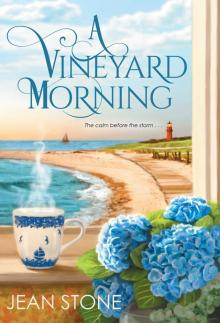 A Vineyard Morning
A Vineyard Morning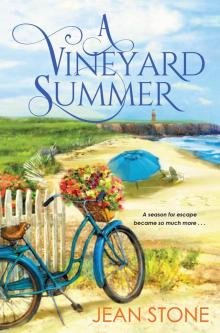 A Vineyard Summer
A Vineyard Summer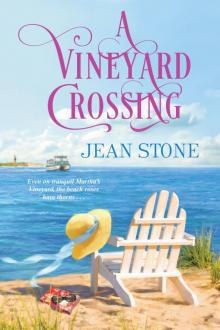 A Vineyard Crossing
A Vineyard Crossing A Vineyard Christmas
A Vineyard Christmas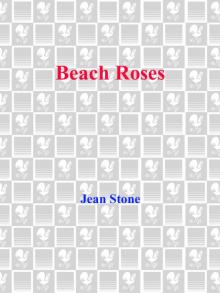 Beach Roses
Beach Roses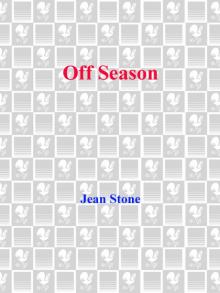 Off Season
Off Season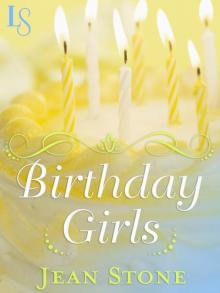 Birthday Girls
Birthday Girls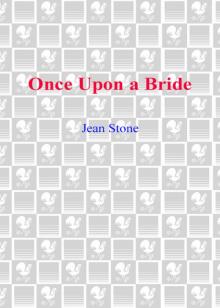 Once Upon a Bride
Once Upon a Bride Places by the Sea
Places by the Sea Trust Fund Babies
Trust Fund Babies The Summer House
The Summer House Tides of the Heart
Tides of the Heart Sins of Innocence
Sins of Innocence Four Steps to the Altar
Four Steps to the Altar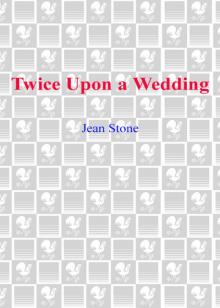 Twice Upon a Wedding
Twice Upon a Wedding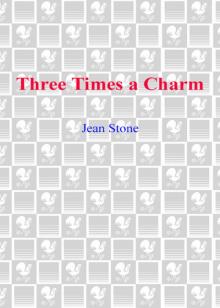 Three Times a Charm
Three Times a Charm